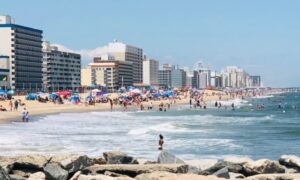 by Kerry Dougherty
by Kerry Dougherty
How to ruin an otherwise lovely early spring-like weekend, Virginia Beach-style:
Send out real estate assessments that show double-digit increase in the value of property (that’s a good thing, by the way) and a huge jump in taxes.
That’s not good.
Yep, many of us opened our mail on Saturday and wished we hadn’t.
While it’s nice that the city assessor believes property values are soaring, we all know what that means: the city council will quietly vote to “keep” the tax rate the same as last year and the year before, and then pat themselves on the back, crowing:
WE DIDN’T RAISE TAXES.
Ahem. Yes they did. They do it every year, just a little sleight of hand.
Let me explain: if your assessment rose 20% – as mine did – and the council votes to keep the rate at 99 cents per hundred dollars of assessed value rather than cutting it to a rate that would keep revenue about where it was last year – your taxes are going up.
A lot!
Look, rising assessments are a good thing. For most of us, our homes are our biggest assets. No one wants their asset to lose value.
If your stocks go up but you leave your money in the stock market, you aren’t taxed on unrealized gains. You’re taxed when you sell shares.
But when assessments skyrocket and you stay in your home, you’re being taxed on your “wealth.” In the parlance of the world of finance, you’re paying taxes on unrealized capital gains. Continue reading

 by Kerry Dougherty
by Kerry Dougherty by Jon Baliles
by Jon Baliles
